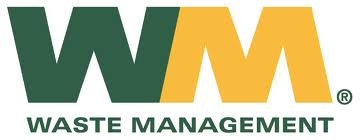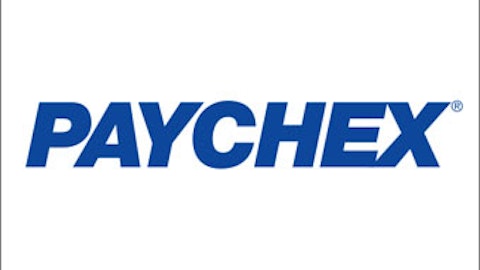Waste management in the United States is a $52-billion industry. It stands to benefit from the projected population increases and a continued industrial expansion as well as from tougher environmental regulations and more recycling programs. With enough confidence in the industry, Bill Gates, through his investment arm, Cascade Investments LLC (see its insider purchases), has built up a nearly 21% stake (76 million shares) in a $10.6 billion waste manager, Republic Services Inc (NYSE:RSG), the second largest player in the industry. Fund manager Boykin Curry at Eagle Capital Management currently holds nearly $300 million in the industry’s largest player, Waste Management Inc (NYSE:WM). These two companies have paid attractive dividends yields to their investors, exhibiting strong dividend growth over the past decade or so. With a dividend yield of 4.1%, Waste Management, the company, currently beats its peer, Republic Services, on the yield, but is it a better dividend stock for the next five years?
Historical performance says that since mid-1998, Republic Services Inc (NYSE:RSG) has been a better investment than Waste Management Inc (NYSE:WM). Republic Services has also successfully outperformed Waste Management over the past nine years, since Republic Services’ first paid its dividend. In terms of dividends, Republic Services was paying a yield of 0.3% nine years ago, while Waste Management was paying a yield of 0.04%. Over the following nine years, Republic Services grew its dividends at an average annual rate of 31.5%, while Waste Management bolstered dividends at a rate of 73.4% per year. However, with a lower initial yield and a higher dividend growth, Waste Management underperformed Republic Services in terms of total returns. The former’s annualized total return over the past nine years averaged 7.09%, while Republic Services retuned 8.76% per year.
However, Waste Management was a relatively better investment play over the past five years. Even with a faster dividend growth, averaging 12.7% per year (compared to 8.1% for Waste Management), Republic Services could not beat Waste Management based on total returns. Waste Management produced a total return of 3.2% per year over the past five years, while Republic Services generated a total return of 2.04%. The outperformance of Waste Management, whose EPS contracted mildly over the past five years, took place against a higher, positive EPS growth for Republic Services. However, over the past five years, the shares of Waste Management traded at a much lower average earnings multiple than the shares of Republic Services.
Now, Waste Management currently has a higher dividend yield but a lower five-year dividend growth than Republic Services. Does this mean it will outperform based on dividends in the next five years? The answer is somewhat tricky. Assuming constant stock prices and dividend growth equivalent to that achieved over the past five years, both stocks in five years will have a forward yield on cost (based on current stock prices) of 6.1%. However, if the two companies continue to boost dividends at the rates equal to the companies’ latest dividend hikes—4.4% for Waste Management and 6.8% for Republic Services— in five years’ time, Waste Management, due to its higher current yield, will have a higher yield on cost (5.05%) than Republic Services (4.6%). Both companies are likely to maintain their annual dividend increases in the mid-to-high single digits, given their payout ratios (43% of free cash flow for Republic Services and 59% for Waste Management).
Does Waste Management also have a better prospect for capital appreciation? Possibly it does. Relative to Republic Services, Waste Management is expected to produce a higher EPS growth over the next five years. The two stocks have similar forward valuations, as they both trade on a 14% discount to the industry average forward P/E. For the reference, Republic Services trades at a deeper discount relative to its own five-year average P/E. The company also trades at a discount based on its price-to-book value ratio relative to the industry average, while Waste Management Inc (NYSE:WM) trades at a significant premium. Still, Waste Management has a higher return on invested capital, totaling 5.86%, compared to 4.55% for Republic Services.
However, the latest trends do not seem so positive for Waste Management. The company recently lowered its fiscal year 2012 guidance, citing headwinds in its recycling and waste-to-energy sections. Overall, the pricing environment remains challenging and highly competitive due to aggressive bidding by smaller competitors. Waste volumes have started to stabilize, but have not been recovering at a healthy pace as the macroeconomic environment remains weak. Still, while Waste Management is lowering its guidance and laying off some 700 employees to achieve cost savings, Republic Services Inc (NYSE:RSG) is raising its fiscal year 2012 guidance.
Despite short-term headwinds, longer-term prospects are solid. Waste volumes are expected to improve with the rebound in the labor market and improvements in construction activity, which has likely bottomed out. As a testament to its pricing power, Waste Management has been able to achieve core pricing growth even during the Great Recession, which has helped offset lower waste volumes. It is expected that core pricing growth will exceed core inflation growth this year. A firmer economic recovery will help boost waste volumes, which, in turn, will facilitate the industry’s and Waste Management Inc (NYSE:WM)’s capacity to generate cash flows for dividends, share buybacks, and investments.





